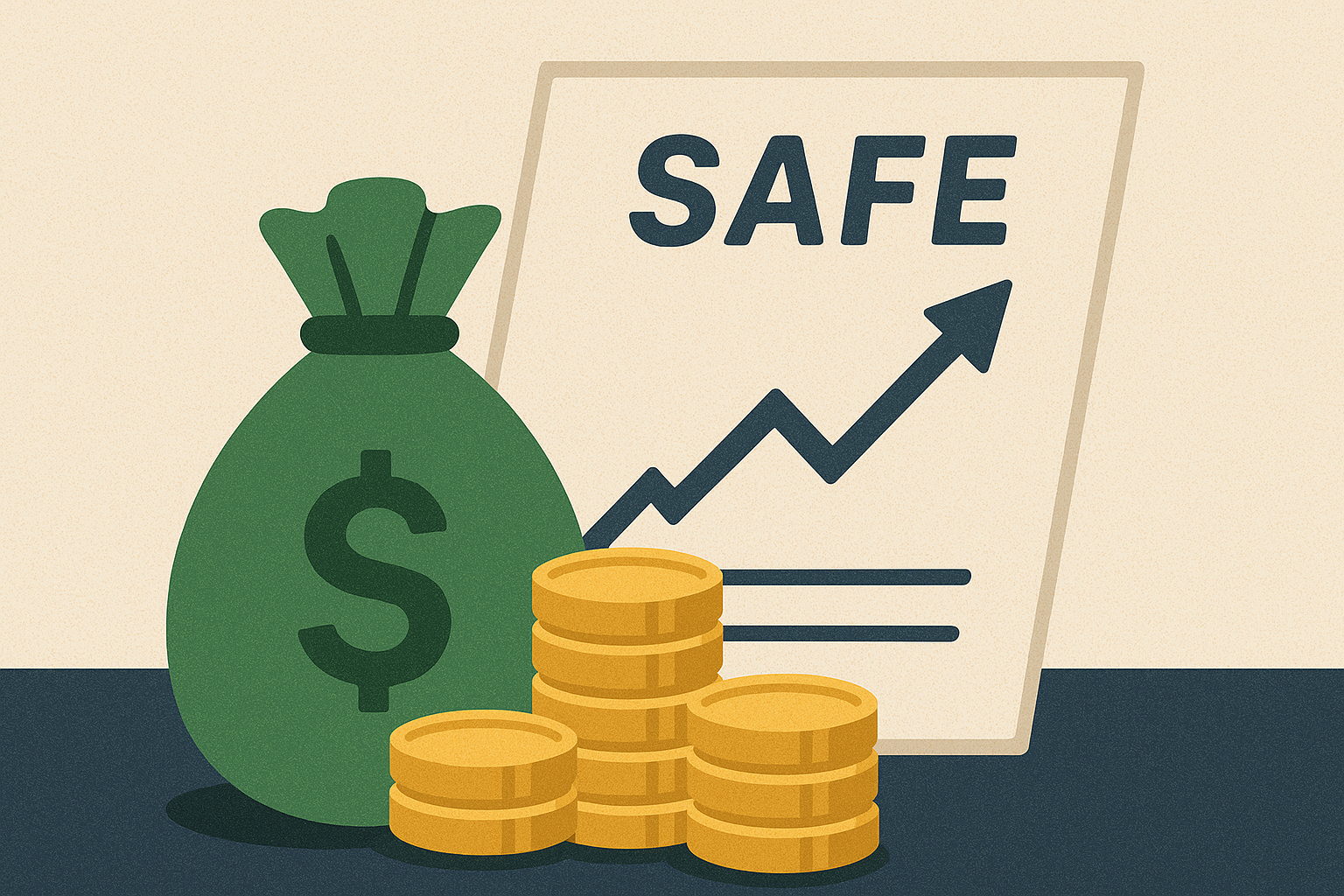SAFEs vs. Convertible Notes or Equity: Why 'Simple' Isn't Always Better

Overview SAFEs were designed to make early fundraising fast and inexpensive. That simplicity can be useful, but it often defers hard questions about enforceability, valuation, and dilution. This memorandum explains how SAFEs actually behave in practice, and contrasts them with convertible notes and traditional priced equity so founders and investors can choose instruments aligned with their valuation confidence and risk tolerance.
Legal Nature of the Instruments
SAFE. A SAFE is a contractual right to receive future equity on specified triggers. It has no maturity date or interest and is not debt. Under standard Y Combinator forms, a SAFE holder is paid after all creditors but before stockholders in a dissolution or liquidity event.
Convertible Note. A short-term debt instrument that accrues interest and has a maturity date. It converts to equity on defined events or can be extended, repaid, or forced to convert at maturity. Until conversion, the investor is a creditor.
Priced Equity. A direct purchase of preferred stock at a fixed valuation, with negotiated rights and a defined liquidation preference. It requires more documentation but provides finality and control.
Investor Remedies and Downside Protection
SAFE. No maturity or repayment right. The only payout arises upon a dissolution or liquidity event, and recovery is junior to all creditors. In limited exits, this priority may have little practical value. If the company stalls without triggering a qualifying transaction, SAFE holders have no leverage to force a resolution.
Convertible Note. Provides maturity and creditor leverage. If a company stalls, noteholders can negotiate extensions, convert under fallback terms, or demand repayment—rights that tend to align incentives before failure. However, maturity dates can also create pressure points for struggling companies that must renegotiate terms or face technical default.
Priced Equity. Investors hold stock with defined liquidation preferences and voting rights. In partial exits or wind-downs, those preferences generally yield clearer and more predictable recovery than a SAFE's contingent payout.
Accounting and Cap-Table Treatment
SAFE. Usually tracked in its own category or as "convertible securities", not as issued shares. Founders record the purchase amount and cap/discount terms. SAFEs count toward fully diluted ownership only when modeled for a priced round. With multiple SAFEs at different caps, dilution outcomes can vary dramatically once conversion occurs. This uncertainty complicates option pool sizing and makes accurate employee equity grants difficult until conversion.
Convertible Note. Recorded as debt until conversion. Cap tables list principal, accrued interest, and conversion terms; shares are added only when conversion happens. The accruing interest increases the effective investment amount, which can surprise founders at conversion if ignored.
Priced Equity. Shares are issued and outstanding immediately. The cap table is definitive, enabling accurate option-pool planning and 409A valuations.
Tax Note. SAFEs are generally treated as equity for tax purposes, though the tax treatment on conversion or certain liquidity events can be complex and varies by investor type and jurisdiction. Convertible notes are debt, which can trigger interest income reporting obligations for investors (original issue discount rules may apply). Priced equity has straightforward tax treatment. Parties should consult tax professionals on structure-specific implications.
Governance and Process Discipline
SAFE. No deadline to resolve. SAFEs can remain outstanding indefinitely, creating uncertainty for future investors who must model multiple conversion scenarios. The lack of a maturity date can also signal to the market that the company has been unable to achieve a priced round.
Convertible Note. The maturity date forces action—extend, repay, or convert—maintaining accountability and cap-table hygiene.
Priced Equity. Governance rights and ownership are fixed from day one, giving institutional investors clarity and board representation when desired.
Choosing the Right Instrument
A central factor is how clearly the company can support a valuation.
Use a SAFE when valuation is highly uncertain and the goal is speed, such as in early accelerator funding or friends-and-family rounds. Parties should recognize that SAFEs lack repayment rights, may create accounting ambiguity and 409A complications for employee option pricing, and can lead to unpredictable dilution if stacked. SAFEs work best for small, initial rounds that will clearly be superseded by a near-term priced financing.
Use a Convertible Note when the company is close to establishing a valuation but wants to postpone it until more traction is demonstrated. Notes impose maturity discipline, provide creditor rights, and avoid the most unpredictable dilution effects of multiple SAFEs. Notes are well-suited for bridge financings or when the company expects to price within 12–18 months.
Use Priced Equity once the company can credibly justify a valuation. A priced round fixes ownership, governance, and valuation baselines, simplifying later financings and option-grant compliance. Although costlier initially, it provides long-term clarity and credibility with institutional investors. The choice of instrument also signals market positioning: SAFEs suggest "too early to price," while priced rounds signal confidence and readiness for institutional capital.
Conclusion
SAFEs make closings easy, but their simplicity often pushes complexity downstream—into 409A valuations, option pool calculations, and priced-round negotiations. Convertible notes restore discipline with modest extra effort. Priced equity demands the most upfront work but yields the cleanest structure and strongest investor confidence. The right instrument depends not on what's trendy but on how clearly the company can price itself and how much protection both sides expect. For guidance on structuring or converting early-stage financings, contact VMG Business Advisory, PLLC.
